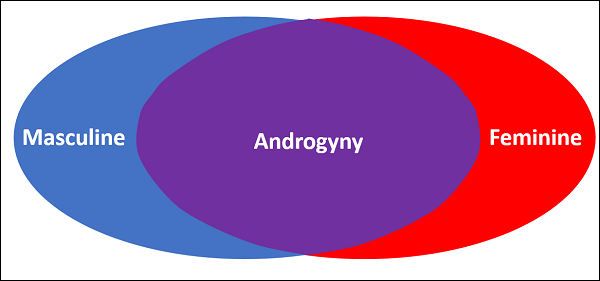There’s an eerie silence that lives in many homes-an invisible fog of tension hanging between married men and women. It’s not loud or violent, yet it claws at intimacy, slowly disfiguring what was once harmony. This cold war of emotion isn’t declared but deeply felt. Beneath the civility and routine of domestic life, there’s often an undercurrent of quiet resentment, unmet expectations, and a stubborn unwillingness to see beyond one’s gendered lens.
At the heart of this unspoken crisis lies a fundamental failure of empathy. Men interpret life from the vantage point of masculine struggles, women from feminine grievances. Each party clings to their version of fairness, often blind to the weight the other carries. The man sees his efforts as a sacrifice; the woman sees hers as survival. Both feel unseen, misunderstood, and unappreciated. What results is not just disagreement, but disconnection.
Now, add economic hardship to this psychological tension, and the storm swells. When basic needs become luxuries, love often takes a back seat. Pressure mounts. The man feels emasculated by his inability to provide; the woman feels abandoned, burdened by responsibilities she thought she’d never have to shoulder. The result is a blame game disguised as dialogue, where every word scratches instead of soothes, and silence becomes a shield.
Tolong support kita ya,
Cukup klik ini aja: https://indonesiacrowd.com/support-bonus/
It is within this combustible context that Dr. Adeoye Oyewole, a psychiatrist at Ladoke Akintola University of Technology (LAUTECH), delivered a controversial diagnosis: ‘Many married men are depressed and committing suicide due to lack of spousal support.’ His words ignited conversations, drawing both sympathy and outrage. But the deeper question is not whether he is right or wrong-it’s whether his argument, emotionally charged as it is, captures the full picture.
Dr. Oyewole paints a bleak portrait of the Nigerian husband-overworked, overwhelmed, and unsupported. He claims that women, armed with the rhetoric of feminism, have retreated into self-interest while men silently disintegrate under societal expectations. His critique of ‘toxic feminism’ positions some women as antagonists in a battle men never signed up for. He laments the rise of wives who keep their income secret, of mothers who poison children against their fathers, and of feminism that, in his view, has deviated from partnership into hostility.
Yet his thesis, bold as it may be, treads dangerously close to oversimplification. For all its truth about male suffering, it glosses over the complex emotional and economic labyrinth women themselves navigate. The very culture that crushes men under the weight of financial expectations is the same one that conditions women to dream only of being cared for, never to care. From girlhood, many are taught to admire the provider, not to become one; to receive, not to give.
This conditioning explains why, even in times of crisis, some women resist stepping beyond traditional roles. There are chilling anecdotes, like the one of a man whose wife died during childbirth because she kept silent about money she could have used to save herself. In his mind, and in the minds of many men, stories like these become proof that women hold back financially, not out of malice, but out of deeply embedded beliefs. But if men see financial withholding as betrayal, women counter that they should never have been forced to cover for a man who promised provision.
It’s a painful loop of expectations that no longer align with reality. The economy is no longer friendly to single-income households, and yet the cultural script hasn’t evolved fast enough. Men still pride themselves on silent sacrifice. Women still seek safety in financial dependence. And when roles blur-as they inevitably do-resentment follows. A woman earning more may still expect to be pampered. A man out of work may feel emasculated if asked to change a diaper. The dysfunction grows when mutual aid becomes transactional and conditional.
To be fair, there are many women who support their husbands, directly and indirectly-by feeding the family, paying school fees, managing the home, and absorbing pressures that might otherwise crush the man. But such women often feel compelled to remind others of their sacrifice, craving praise for doing what society never asked of them. In contrast, men, socialized to suffer in silence, rarely speak of their pain unless it erupts into breakdown, addiction, or suicide.
Dr. Oyewole’s core message-that men are silently dying-is tragically valid. But his framing places too much blame on wives and too little on a system that never gave men room to be vulnerable or women space to lead without guilt. His invocation of feminism as the villain ignores how patriarchy itself taught men to hide their fears and women to measure worth by dependence.
There’s a broader tragedy here: a society that has forced both sexes into rigid roles, then punishes them for failing to adapt. Women, expected to be submissive, now bear financial burdens. Men, taught to be strong, now buckle under invisible weights. The world is changing, but expectations haven’t caught up. And somewhere in between, love is suffocating.
Men’s shorter life expectancy is not simply because wives don’t help out. Biology plays a part-genetic vulnerabilities, weaker immune responses, higher rates of infant mortality in boys. But so do risky behaviors, dangerous jobs, and emotional repression. Men smoke more, drink more, drive recklessly more. They’re less likely to seek medical help, and more likely to die from avoidable illnesses. Their social networks are thinner; their emotional lives often impoverished. And in Nigeria, where mental health is still shrouded in shame, these realities take a heavier toll.
Even government efforts to promote gender equity raise new questions. When Governor Bago of Niger State insisted on every local council vice-chairperson being a woman, he likely imagined empowerment. But what kind of empowerment? Will these women serve selflessly, or merely replicate male patterns with added entitlement?
Provided by SyndiGate Media Inc. (
Syndigate.info
).






